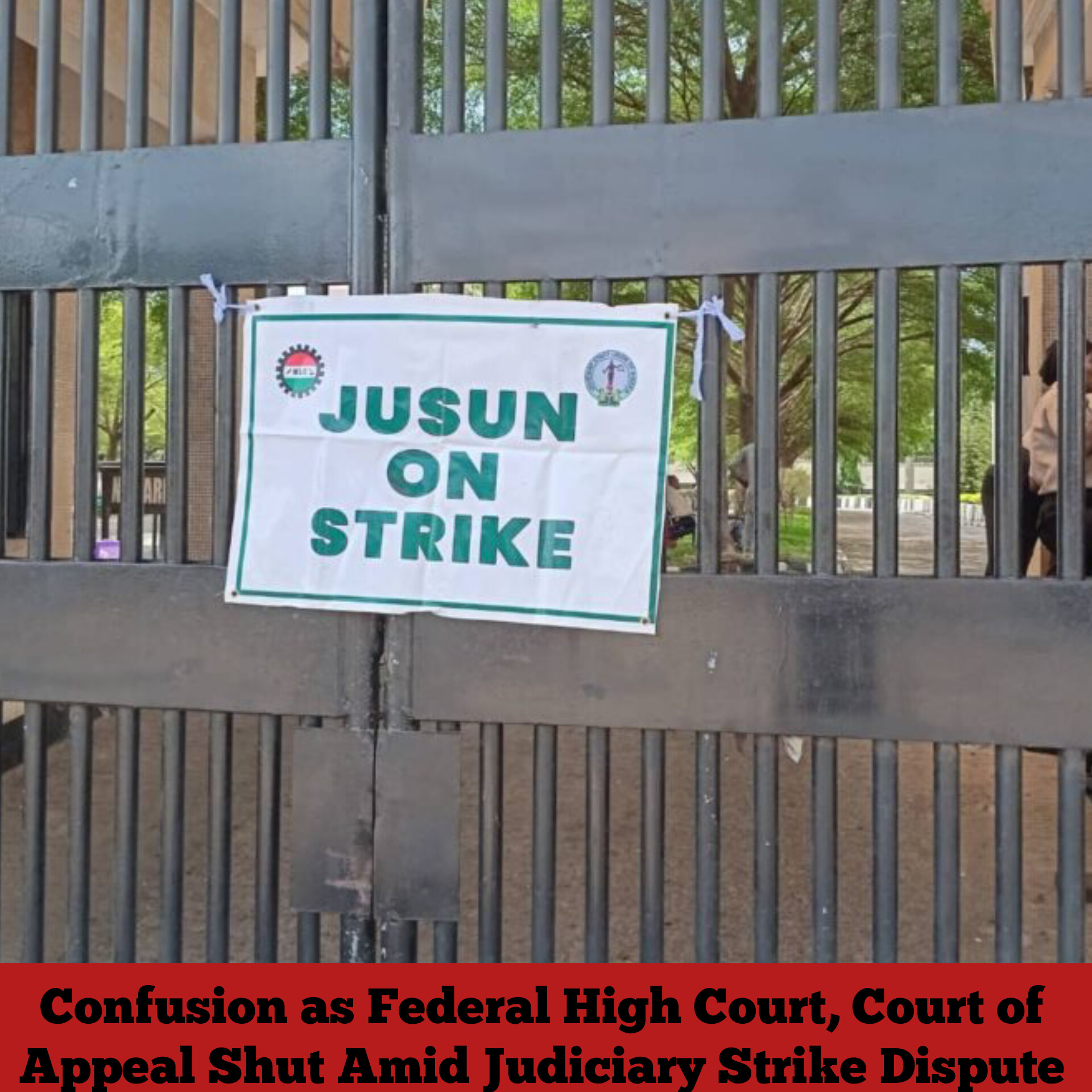The Federal High Court in Abuja was under lock and key on Monday, leaving lawyers, court staff, and litigants stranded, in a surprising turn of events amid ongoing industrial action by the Judiciary Staff Union of Nigeria (JUSUN).
This development comes barely 24 hours after a statement was issued announcing that workers at the Supreme Court, the National Judicial Council (NJC), and the Federal High Court would not be joining the strike.
When our correspondent visited the Federal High Court premises early Monday, the gates were firmly shut, and the premises were inaccessible. A similar situation was observed at the Court of Appeal headquarters in Abuja, where access was also restricted.
The confusion stems from a communiqué issued by JUSUN on May 30, directing its federal chapters to embark on a nationwide strike beginning midnight on Sunday, June 1. The union, in the notice signed by its Acting General Secretary, M.J. Akwashiki, cited the failure of negotiations with the Minister of Labour and Employment as the reason for the industrial action.
Among the demands tabled by judiciary workers are the payment of a five-month wage award, immediate implementation of the new ₦70,000 national minimum wage, and a long-awaited 25% to 35% salary increment.
However, in a contrasting statement on Sunday, the JUSUN chapter at the National Judicial Council, through its Public Relations Officer, Mr. Joel Ebiloma, announced that key federal courts would remain operational. The decision, it explained, followed a last-minute intervention by the Chief Justice of Nigeria, Justice Kudirat Kekere-Ekun, who reportedly secured a two-week grace period for the federal government to meet the union’s demands.
Monday’s court closures, therefore, have left many bewildered, raising concerns over whether the strike has indeed been suspended in the federal judiciary or if conflicting directives within the union are to blame.
As of press time, neither the NJC nor the leadership of JUSUN had issued a clarification on the conflicting situation at the courts in Abuja.



